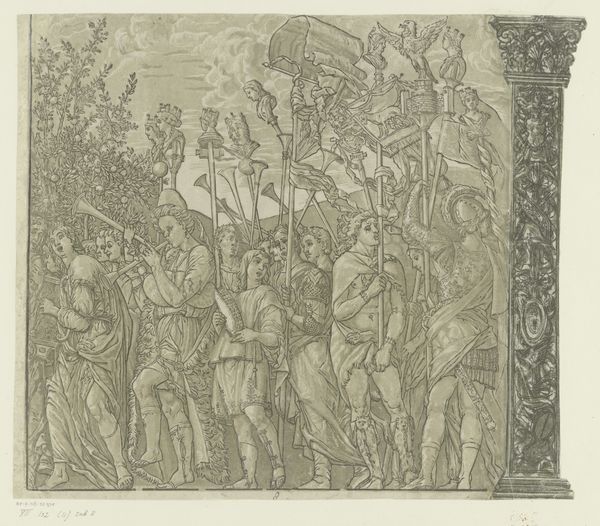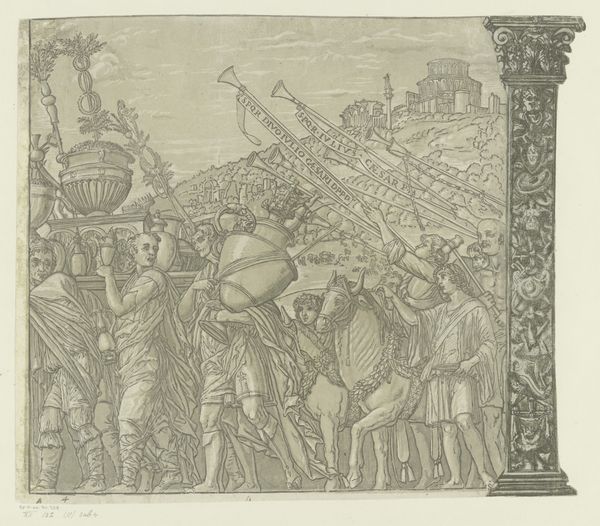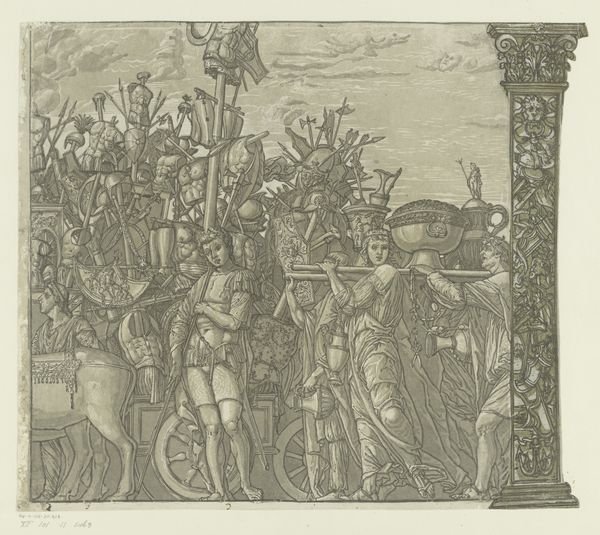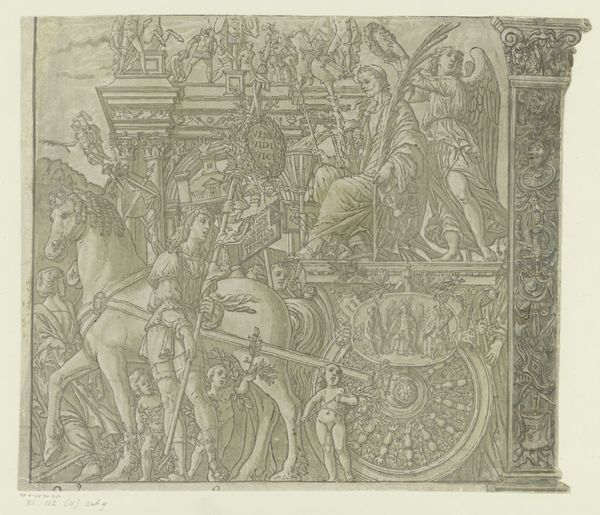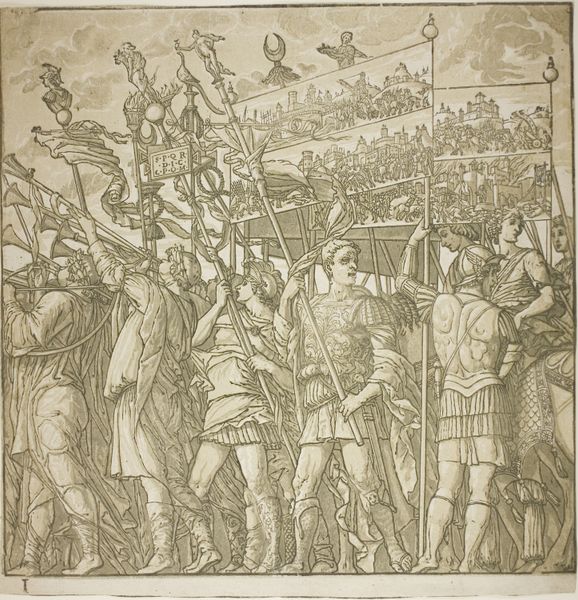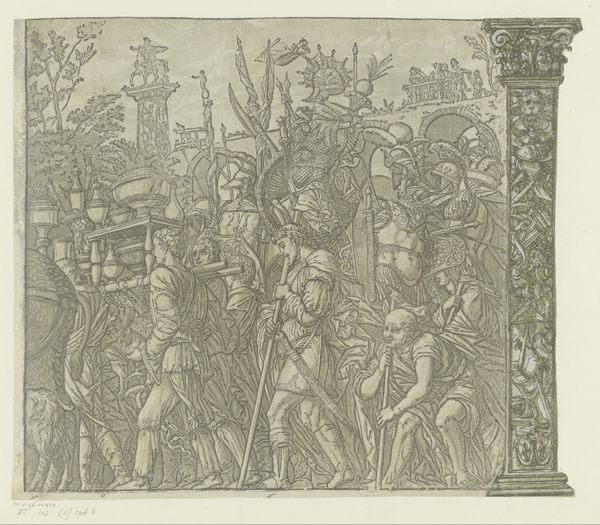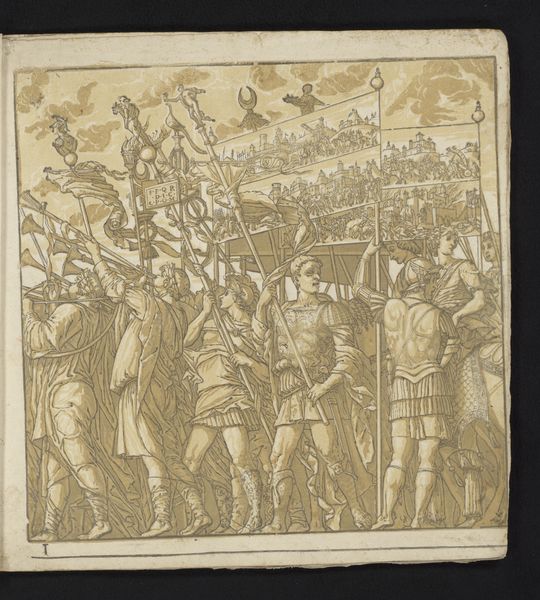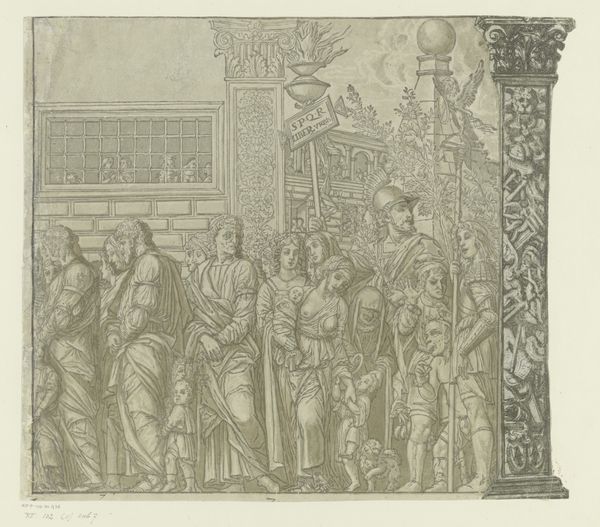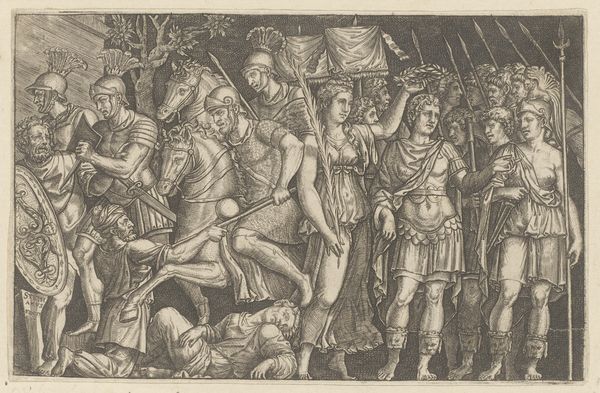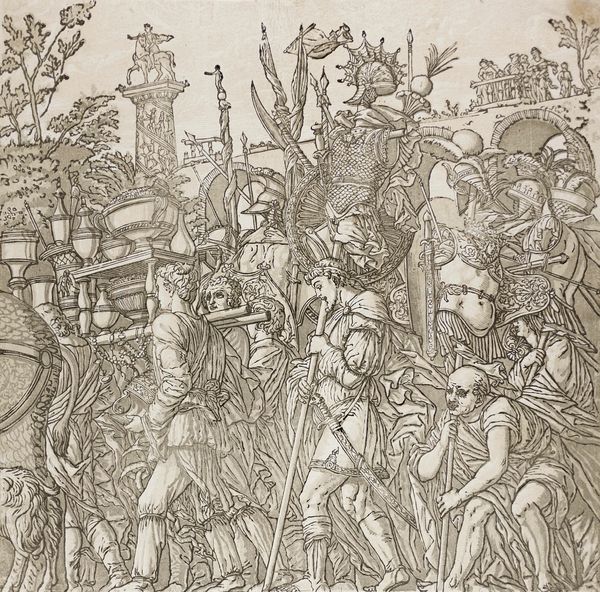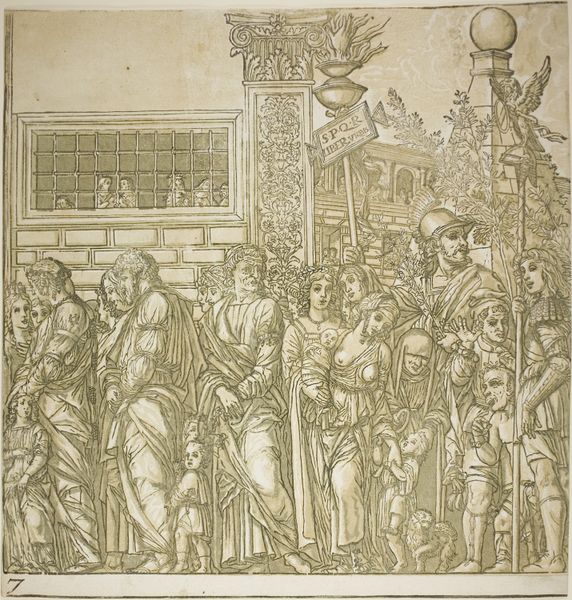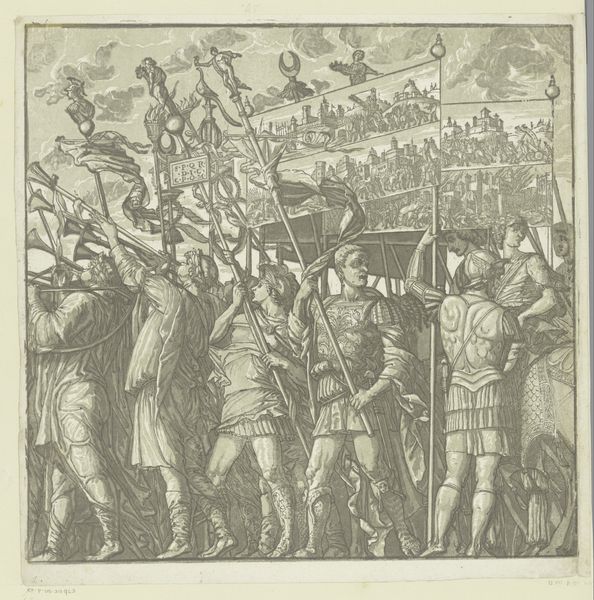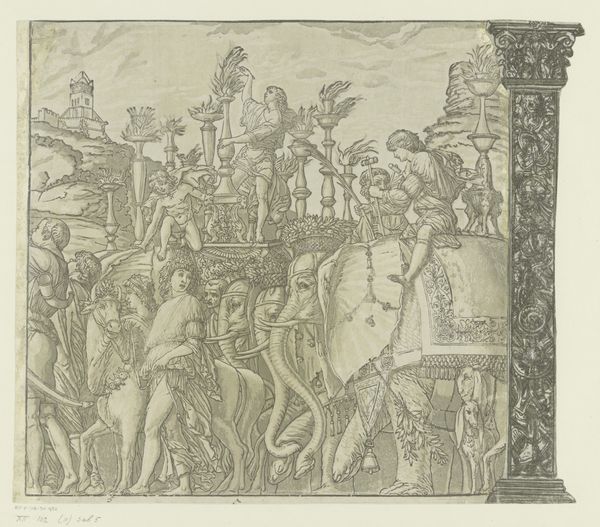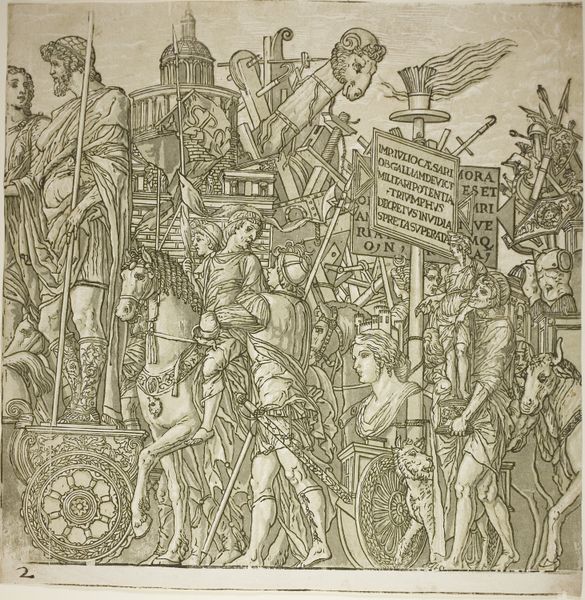
print, engraving
# print
#
mannerism
#
figuration
#
romanesque
#
line
#
history-painting
#
italian-renaissance
#
engraving
Dimensions: height 375 mm, width 410 mm
Copyright: Rijks Museum: Open Domain
Andrea Andreani created this chiaroscuro woodcut, "The Triumph of Julius Caesar," in the late 16th or early 17th century. Dominated by its monochromatic palette, the print evokes classical bas-reliefs, with dense, parallel lines and cross-hatching creating a sense of depth and volume. The composition is structured as a procession moving from left to right, emphasizing the power and spectacle of the Roman triumph. Andreani employs a visual language that draws from historical and cultural codes of the Renaissance. The figures are rendered in classical poses, and the inclusion of banners and trophies alludes to Roman military achievements. The architectural border, with its ornate details, frames the scene, reinforcing the theme of imperial grandeur. The artwork, therefore, can be seen as a visual discourse on power, history, and representation, reflecting the Renaissance fascination with classical antiquity. It serves not only as a historical depiction but also as an aesthetic statement about the enduring legacy and interpretation of Roman culture.
Comments
No comments
Be the first to comment and join the conversation on the ultimate creative platform.
